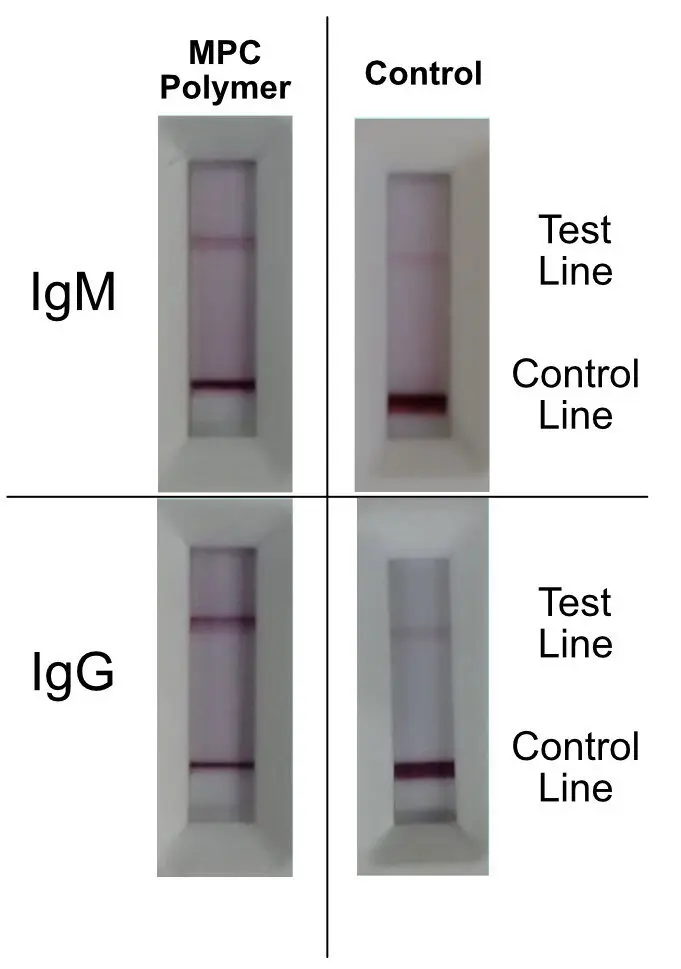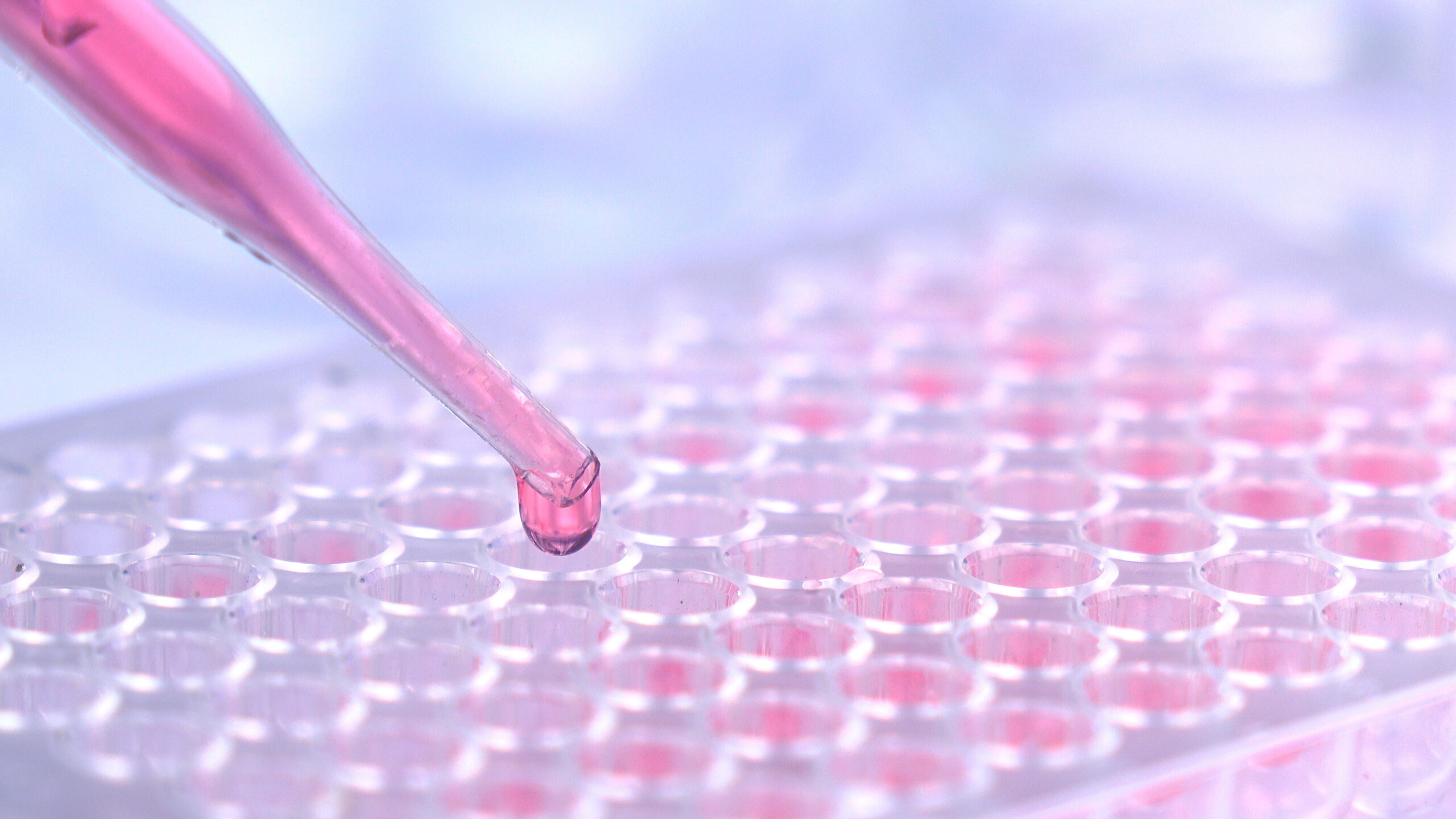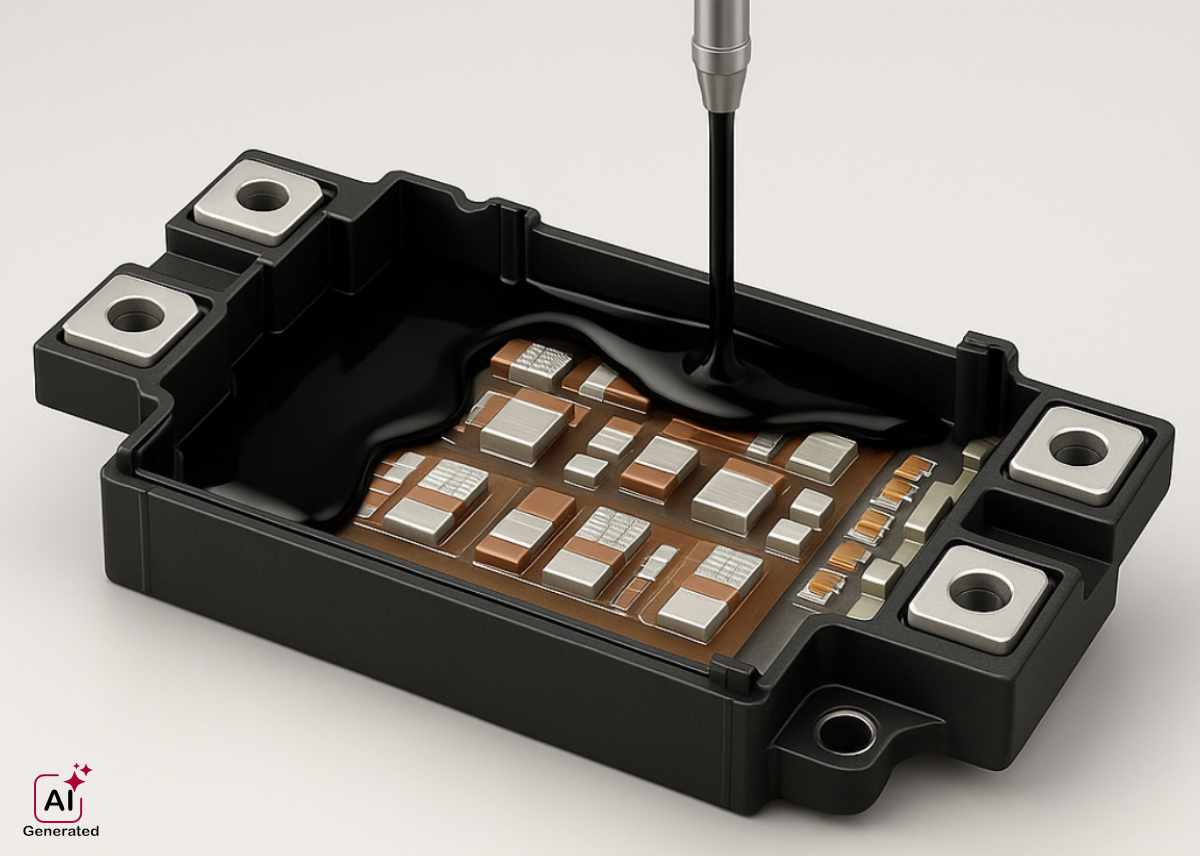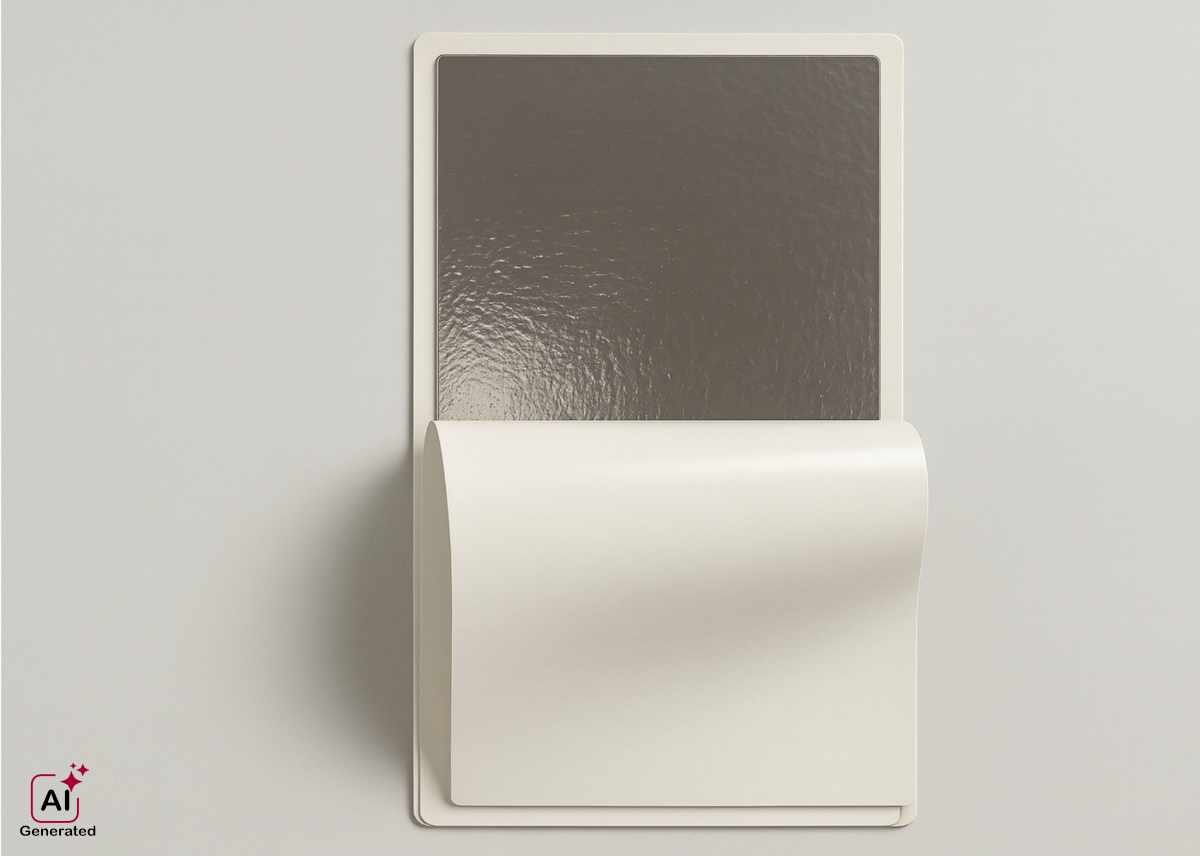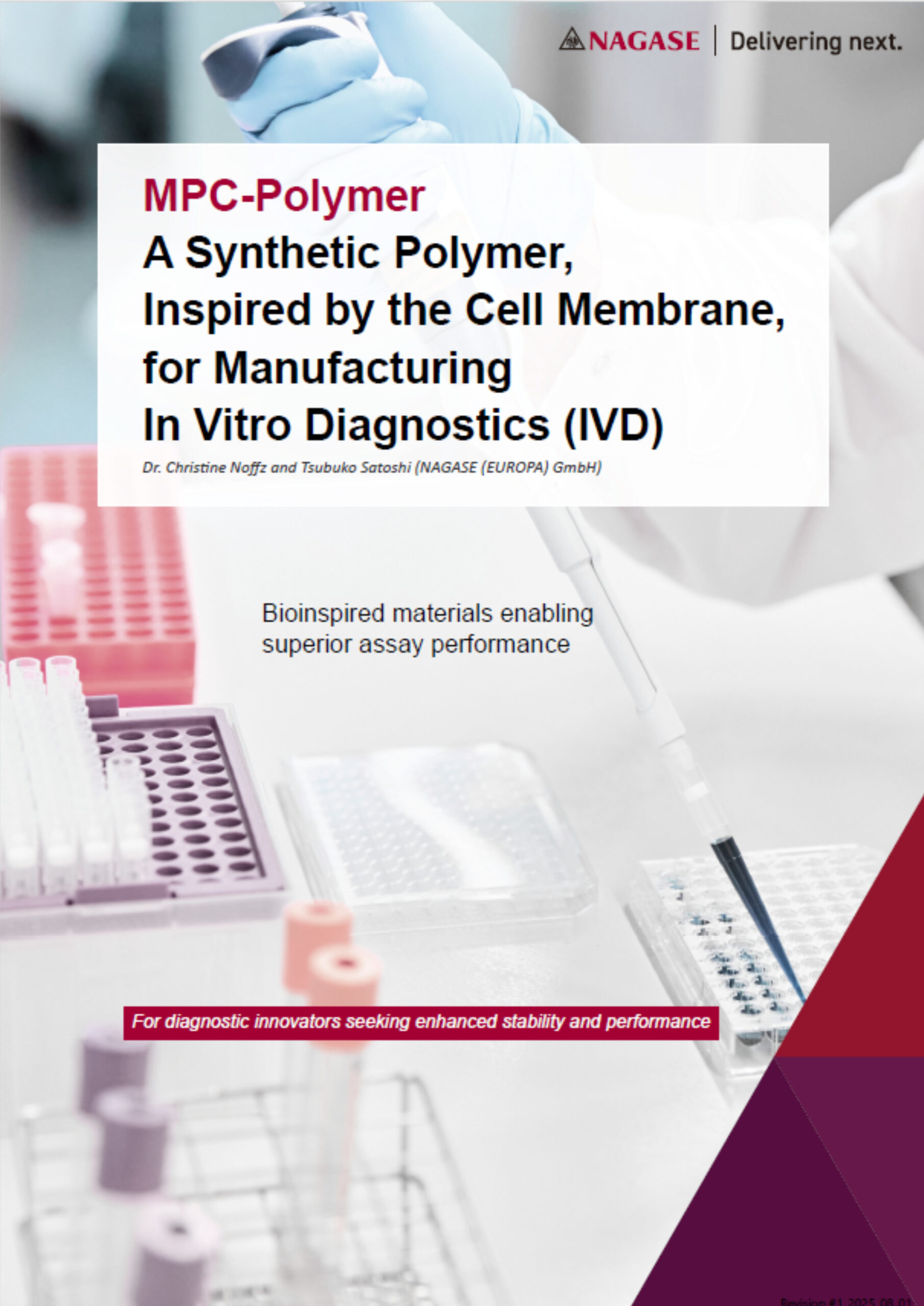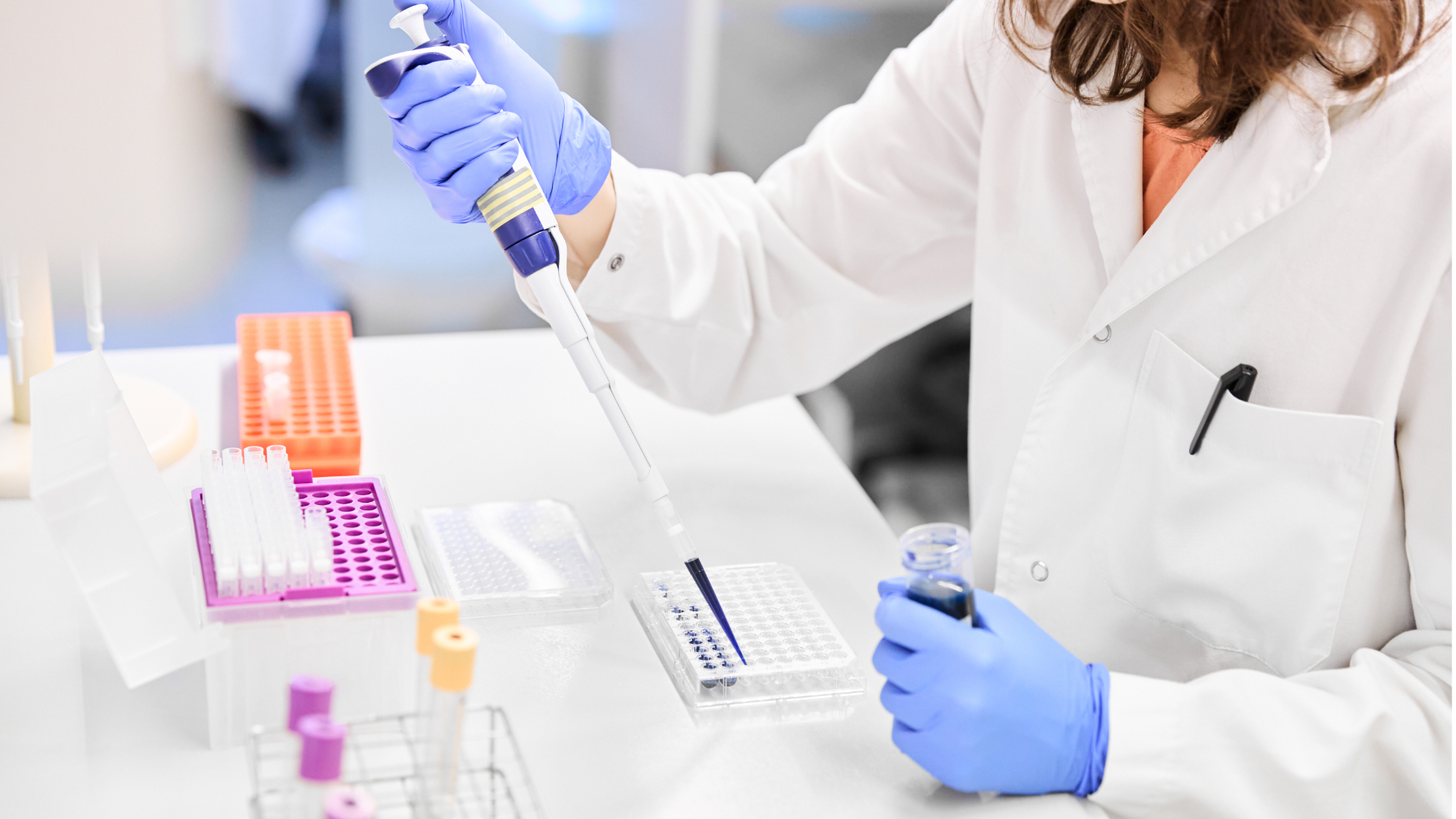MPC Polymer
Synthetic, water-soluble polymer with exceptional biocompatibility.
Optimized for IVD and assay reagent formulations in modern diagnostics.
Biocompatible Polymer for Reliable and Safe Diagnostic Applications
MPC Polymer (2-Methacryloyloxyethyl Phosphoryl Choline) is a fully synthetic, water-soluble polymer featuring a unique monomer composition that combines hydrophilic phosphoryl choline and methacrylic groups. These properties result in excellent biocompatibility and high hydrophilicity, making MPC Polymer ideal for use in IVD reagents and biochemical assay systems.
Its chemical synthesis ensures high purity and reproducibility with minimal biological risk and negligible lot-to-lot variation – essential in sensitive diagnostic environments.
NAGASE supplies MPC Polymer for IVD, immunoassays, and biomedical applications.
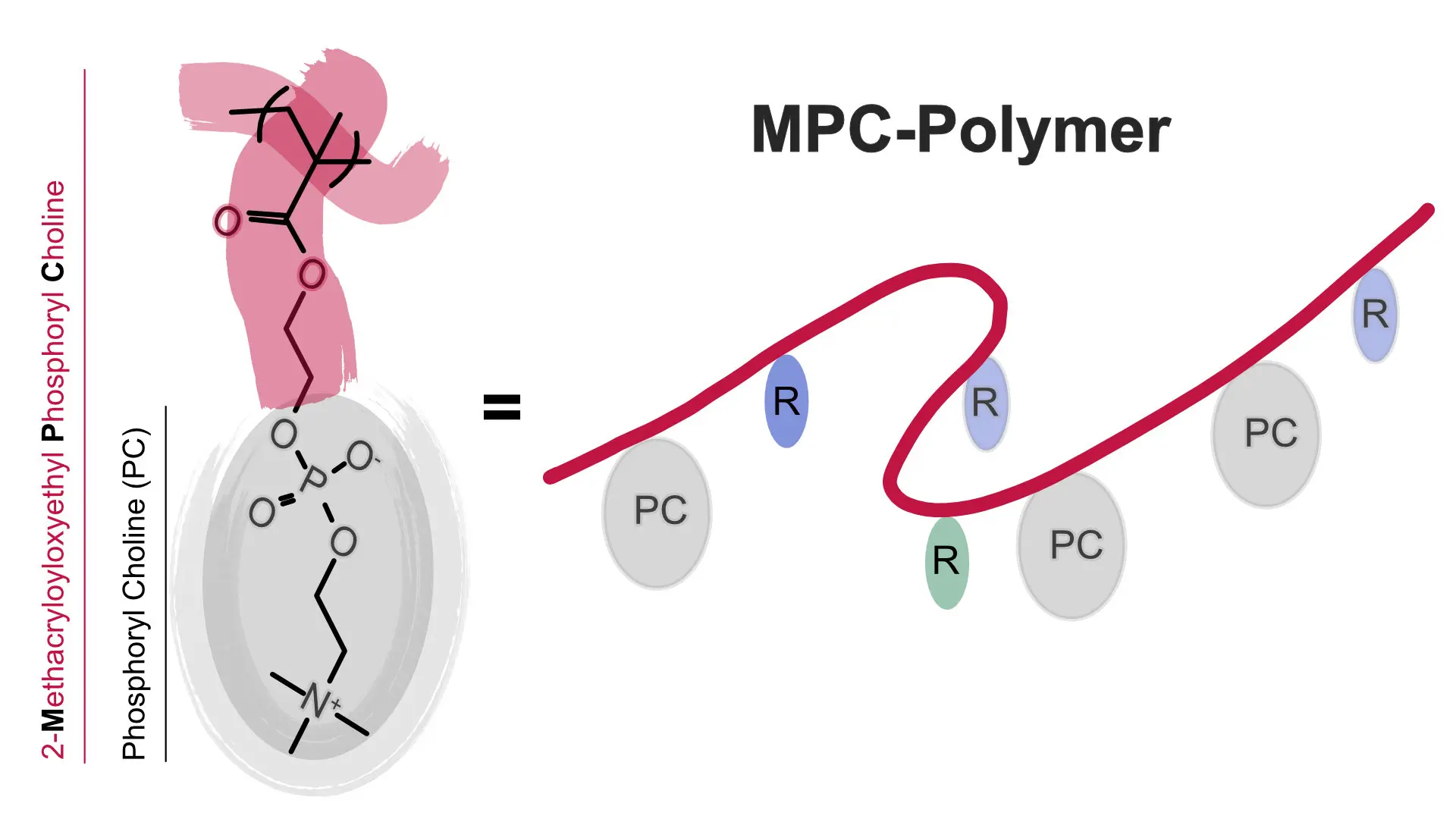
Immunoassay
Western Blotting
Immunohisto-chemistry
Agglutination Assay
Lateral Flow Tests
Bead Based Assays
Applications
MPC Polymer is widely used in immunological and diagnostic assays due to its stability and biocompatibility.
- Immunoassay development and optimization
- Western Blotting for enhanced signal clarity
- Immunohistochemistry applications
- Agglutination assays requiring biocompatible reagents
- Lateral flow tests with improved reagent performance
- Bead-based assays for multiplex diagnostics
Features
MPC Polymer ensures reproducibility, safety, and high biocompatibility for advanced assay development.
- Fully synthetic structure – Minimizes biological risk and contamination
- High biocompatibility – Phosphoryl choline groups reduce non-specific interactions
- Excellent hydrophilicity – Promotes stable dispersion in aqueous environments
- Lot-to-lot consistency – Reliable performance across manufacturing batches
- Versatile usage – Suitable for multiple diagnostic assay formats
Additional Information
| Synthetic polymer (MPC-Polymer) | Protein-based reagents | |
|---|---|---|
| Lot-to-lot variation | no | yes |
| Danger of infection | no | yes |
| Stability | high | low |
| Reproducibility | high | high |
| Impurity | no | yes |
MPC-Polymer effectively suppresses lot-to-lot variation.
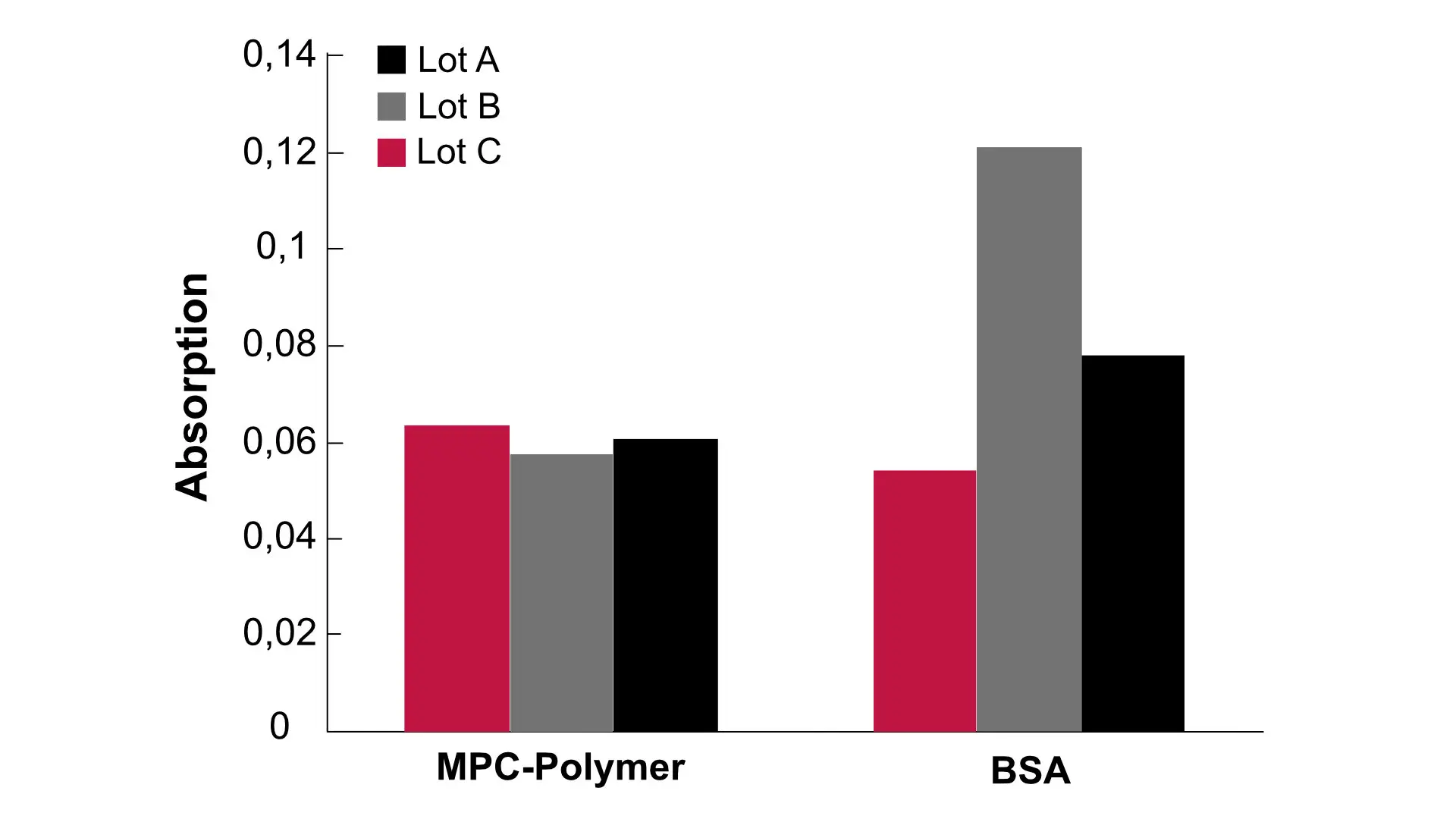
Blocking Effect
MPC-Polymer effectively suppresses non specific adsorption of protein on microplate or magnetic beads.
This experiment shows a 50 % better performance compared to the common material BSA.
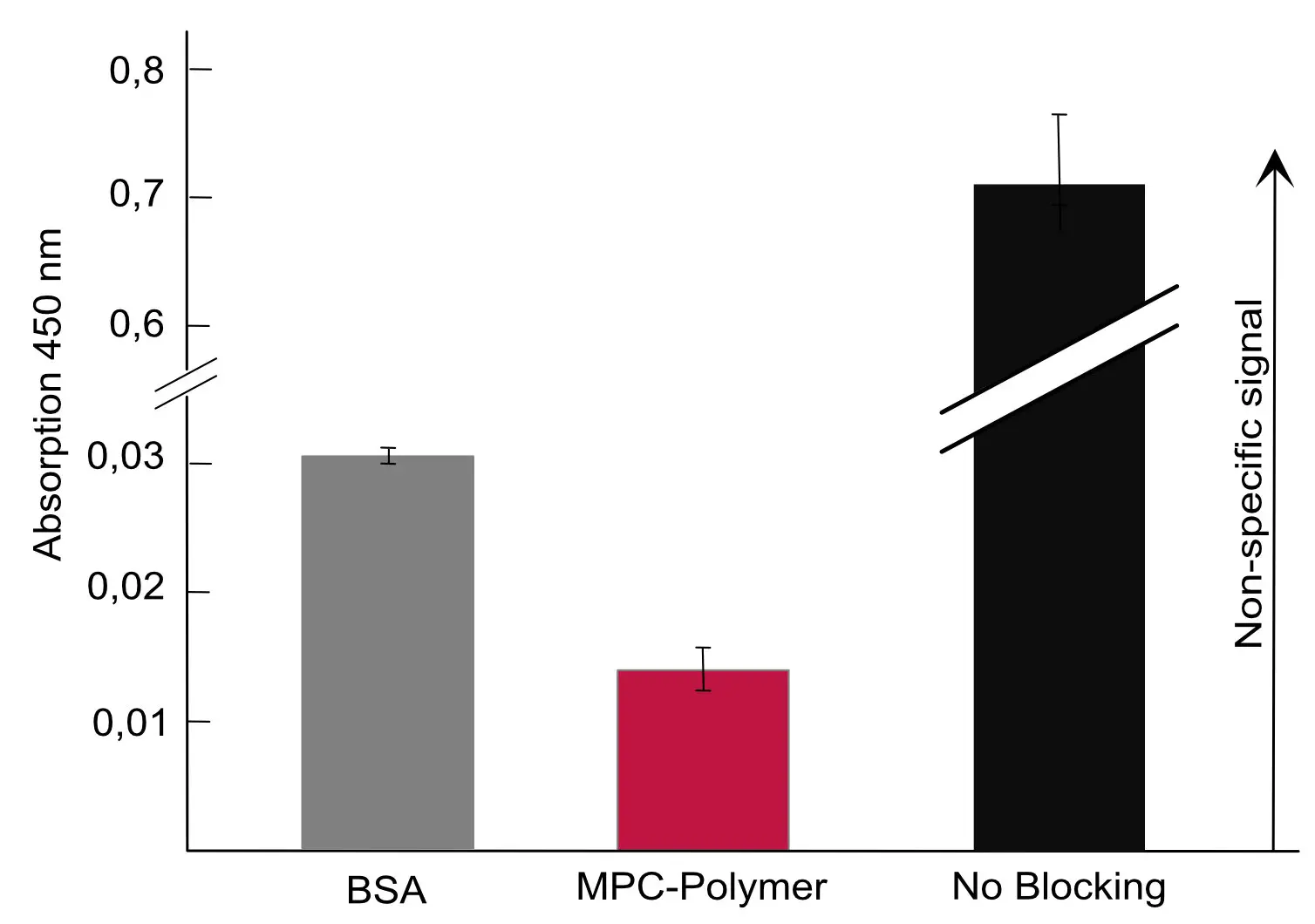
Protein Stabilization Effect
MPC-Polymer effectively stabilizes proteins on solid or liquid phase materials.
MPC-Polymer and its hydrated water surrounds proteins to optimize the hydrophobic balance, and suppresses denaturation, aggregation, and non-specific adsorption to inside wall of vessel.
This experiment shows a 50 % better performance compared to the common material BSA
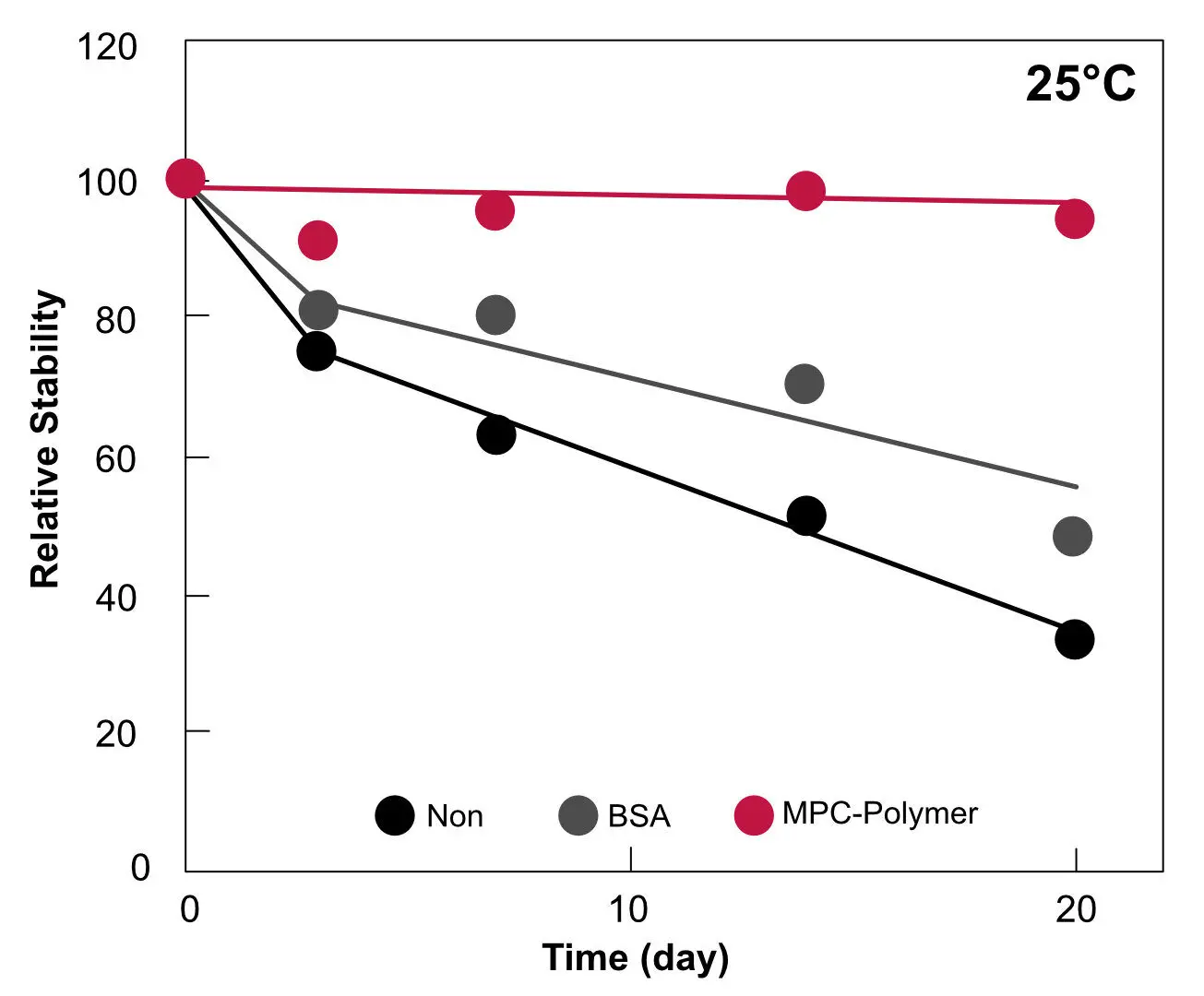
Sensitizing Effect (Latex Agglutination Test)
MPC-Polymer effectively improves the sensitivity of latex agglutination tests.
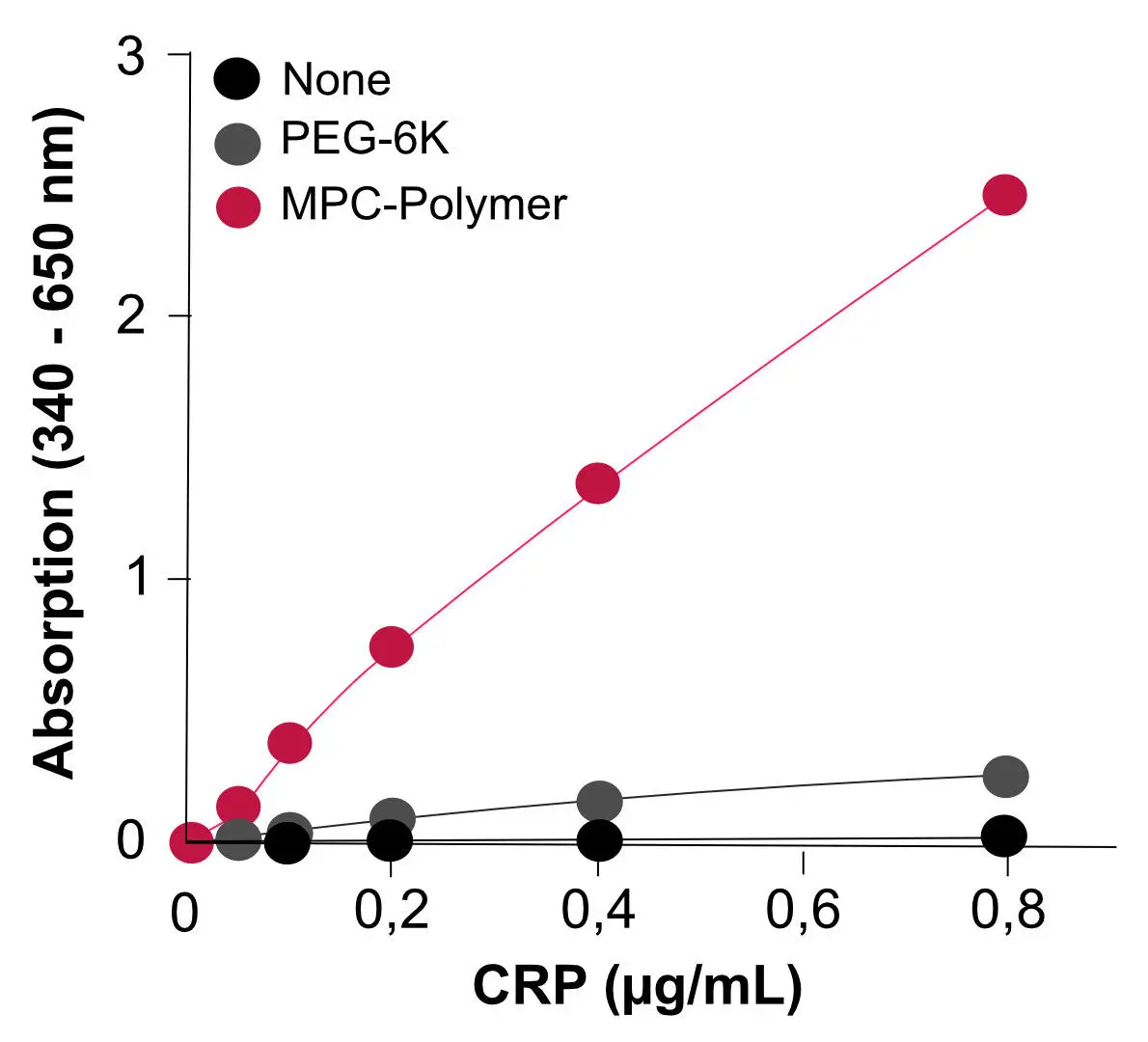
Sensitizing Effect (Lateral Flow Test)
MPC-Polymer significantly improves the sensitivity of lateral flowtests.
